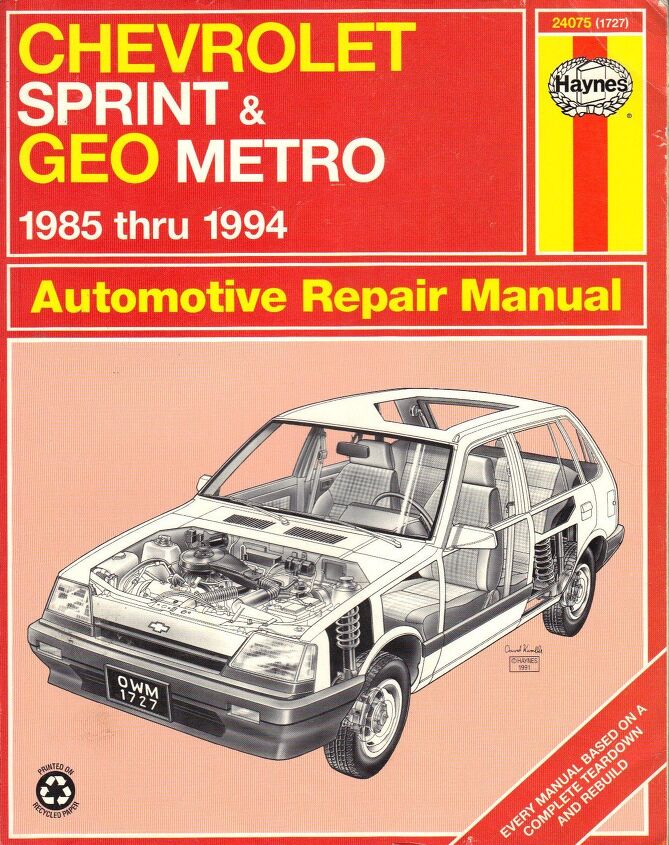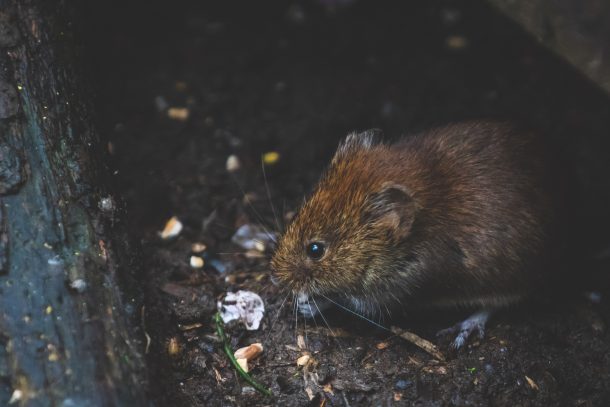#AutomotiveMaintenance
Haynes Manual Founder Dies, Aged 80
Even if you’re not mechanically minded enough to repair your own vehicle, your status as an automotive enthusiast has likely led to your encountering a Haynes Owner’s Workshop Manual at one point or another. Due the wealth of information available within, this author purchased one for nearly every out-of-warranty model to ever pass through his ownership.
While the internet stole some of Haynes’ thunder, its paperback manuals (and their digital equivalents) are still an important resource for at-home mechanics and D.I.Y. types. Unfortunately, while browsing around for materials on the first-generation Eagle Talon, the Haynes website informed us that its founder recently passed away.
Judge Dismisses Lawsuit Over Rodents Eating Automotive Wiring
We previously discussed how the implementation of bio-plastics in the automotive industry contributed to new claims that rodents have developed a penchant for wiring insulation. While rats gnawing on wires of cars isn’t a novel problem, some believe that the new materials used have exacerbated the issue.
Numerous lawsuits have been filed against various manufacturers on the grounds that the soy-based compounds used in modern-day wiring is irresistible to rodents. One of the more recent legal bouts involves Toyota. Brian Kabateck, a Los Angeles attorney involved in a class-action lawsuit against Toyota Motor Sales, filed on behalf of an Indiana resident after their Toyota Tundra become a meal for rodents three times. The total damage was estimated at roughly $1,500, which Kabateck said Toyota refused to cover.
The case, which involves multiple plaintiffs all represented by Kabateck, has been dismissed without leave to amend — meaning it cannot be refiled. Is this an unfair victory for Toyota and hoards of hungry rats, or are these wiring claims lacking the substantive elements required to be taken seriously?
Rodents May Have Flavor Fetish For the Wiring Insulation in Newer Vehicles
Shortly after the dawn of new millennium, automakers started implementing bio-plastics made from corn starch, genetically engineered bacteria, or vegetable fats and oils. The rationale for this was that sustainably sourced materials were better for the environment and lowered dependency on petrochemicals. Unsurprisingly, bio-plastics gained in popularity at roughly the same time as ethanol.
Since at least 2010, soy-based bio-plastics have been a popular alternative for wiring insulation in automobiles. But there’s a problem — rodents love how it tastes. This has allegedly resulted in a surprisingly high number of owners reporting that rats chewed through the wiring inside their automobile.
While the problem isn’t entirely new, the frequency of the incidents appears to have been spurred by automakers using more palatable materials. In fact, the issue has grown so bad in recent years, numerous lawsuits have cropped up demanding manufacturers pay for damages. Honda was named in a suit from two years ago involving 2012 to 2015 model year vehicles, and Toyota was hit with one for cars produced between 2012 to 2016.
If Robots Can Build Our Cars, Why Don't They Service Them?
Robots may be able to assemble your car, but they aren’t going to be servicing it anytime soon. Automation has made many industrial occupations irrelevant over the last few decades. Machines have even begun entering the fast-food industry and proven themselves adept line cooks. So then why aren’t they changing your oil?
The technology is available but implementing it is too damned expensive and slow. No machine yet qualifies as a “full-service” device, so centers would have to purchase multiple rigs and keep someone on staff to operate them — not exactly cost-effective. However, as those machines come down in price and gain in number, we’ll begin seeing them put into use more and more. Eventually, you’ll be returning to the servicing department to complain about a robot ruining your car instead of an inexperienced mechanic. But when?
Gen Xers, Millennials Struggle to Find Trusted Mechanics
Everyone knows a friend or, more frequently, a friend’s middle-aged dad who has “a guy.”
The guy in question doesn’t necessarily need to be male and the friend only needs to know them tangentially. They just have to be some kind of professional or tradesman that they trust implicitly with a single important aspect of their life. For automotive enthusiasts, the guy is a mechanic and usually has a whole shop backing him up. Unfortunately, “the guy” has remained elusive for younger generations.




















Recent Comments